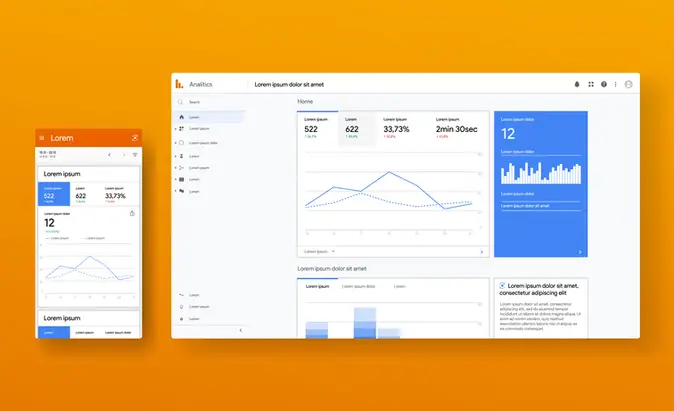With the ease and convenience of the internet at our fingertips, we have access to a seemingly infinite amount of information every day. However, finding exactly what you’re looking for online can sometimes be a bit of a trick. That’s why Google Search algorithms are so essential. Without them, it can feel like searching for a needle in a haystack (or hayfield!).
To help that proverbial needle rise to the surface, web crawlers—like Google—work to gather information and resources from all over the internet, sifting through countless pages and organizing the findings into the search results returned.
What are Google Search algorithms and how do they work?
When embarking on a search, Google ranking systems carefully (and quickly!) must sort through seemingly infinite web pages to find items that match the keywords you typed into search.
The process of accomplishing this begins when you first type keywords or phrases into a Google search query. Google Search algorithms are triggered, the moment you hit “enter”, to review those keywords and organize the information. Google’s web crawlers work through the expanse of the internet to match terms and return info that’s sorted, based on rankings and key factors. Your results are organized in a way that best matches all the important factors of your query. The highest-ranking pages are served further up on your search engine results page (SERP)—with the very best matches being the first results on the page.
Six important Google Search algorithm essentials
To reach those top spots on a SERP, Google Search algorithms weigh a host of factors while tabulating and serving your query results. The following are six key elements that should be considered, to ensure your website is ranking high and popping up in potential client’s search results.
1. Search keywords and phrases
Google will first audit the meaning of your search query. In doing this, the system will identify spelling errors (and make best-guess corrections), look at synonyms, and try to discern the level of specificity you’re looking to achieve in your search.
The more keywords and phrases your site has to match with potential user queries—the better chance of people finding your site in their search results.
2. Page relevance and accessibility
Next on the task sheet, Google algorithms will analyze webpage content for information that aligns with the search words or phrases you queried—and check to make sure the page content is easy to access.
Pages that are accessible to as many people as possible (including users experiencing technical or physical constraints) will rank higher. Ensuring your site has appropriate alt text and using clear and concise language are simple ways to accomplish this.
3. Expert sources and quality content
For a real estate agent, the most important thing is location, location, location; and for the web, it is all about content, content, content. Google search algorithms especially like content that demonstrates top-notch expertise and trustworthiness.
Markers of strong content include high-quality text (optimized with appropriate keywords), and pages with quality incoming links (measured by Google PageRank). If your site content has higher expert sources and quality content markers, Google will return your pages in top SERP positions.
4. Ease of usability
Simple-to-use webpages are well-loved by Google Search. Through algorithms, Google is able to see both individual site pages and larger websites that may be triggering user pain points. Those pages are deprioritized when returning search results and buried under pages with content that provides a better user experience. Things like page speed, broken links, load times and more contribute to these factors.
The good news is that many of these issues can be fixed. A good web developer will identify areas needing improvement—and make the adjustments necessary to help support easier usability.
5. Geographic location
To ensure your searches make sense, Google weighs your location when determining what results to capture and share with you.
For example, if you live in Michigan and you’re looking for “the best BBQ nearby”—you’re more likely to receive results outlining restaurants in your state and zip code, than rib shacks in other parts of the country (or world).
6. Content post dates and refreshes
When Google Search algorithms do their crawling, they’re also taking into account how often pages and websites have new content added—and when that content was posted. This information is taken into consideration while SERPs are tallied. And, the query you pose can play a role in how the newness of your search results are served.
If you’re looking for the latest health news, your search will look at the newest dates and most appropriate content. But, if you’re looking for confirmation of a historical fact from the days of the American Revolution—your search may not put so much weight on newer content.
Make sure your site is included in top SERPs
Do you know how well your site is performing? With recent Google updates, you may see rankings, traffic, and/or site conversions take a hit. Making sure that your content and website are up-to-date in the latest search algorithm essentials is an important part of maintaining your online business—and continuing to serve and acquire customers.
Give your website a tune-up with an audit from The Branding Agency, Charlottes’s best web design company. Our long-standing experience with custom web design, website development, and digital marketing can help you maneuver through the nuances of Google Search algorithms. Reach out today to find out more or to ask for a Web design quote.


